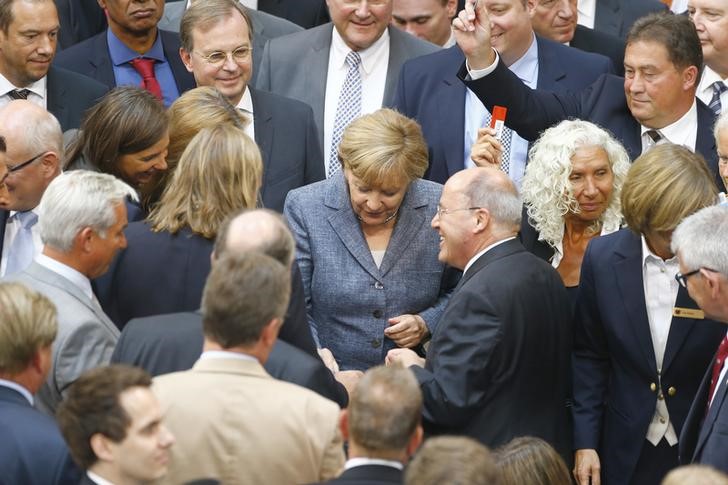German lawmakers risk Turkey's wrath with Armenia 'genocide' vote

German lawmakers risk angering Turkish President Tayyip Erdogan and jeopardising an EU-Turkey migrant deal by backing a planned resolution branding as "genocide" the mass killings of up to 1.5 million Armenians by Ottoman Turkish forces a century ago.
The vote, expected to be held in the first week of June, comes at a particularly sensitive time, with German Chancellor Angela Merkel keen to ensure that Erdogan remains committed to implementing the migrant deal she has championed.
Critics accuse her of going soft on Turkey over human rights because she is desperate to stem the flow of migrants to Germany. She drew fire from critics for allowing a German court to go ahead with investigations against a comedian whom Turkey wants charged for mocking Erdogan in a sexually crude poem.
Merkel's conservatives, their junior coalition partner the Social Democrats and the opposition Greens are finalising the wording of the largely symbolic resolution.
Conservative Franz Joseph Jung said the term "genocide" would be in both the headline and the text of the resolution.
"We want to contribute to reconciliation but I think we want to correctly describe a historic fact," he told Deutschlandfunk radio on Tuesday, adding it was separate from the migrant deal.
Turkey denies that the massacres, which took place as Ottoman and Russian forces fought in the east of the Ottoman Empire, constituted genocide. It argues that the there was no organised campaign to wipe out the Armenians, who are Christian, and no evidence of any such orders from the Ottoman authorities.
Turkey's ambassador to Germany, Huseyin Avni Karslioglu, has already criticised the move.
"It's not the job of national parliaments to judge history," he told the Rheinische Post daily.
There are also fears that the resolution could stir tensions with the some 3.5 million people of Turkish origin who live in Germany.
Last year, German President Joachim Gauck condemned the killings of Armenians as genocide in a speech to mark the 100th anniversary of the massacres. Germany had previously avoided using the word 'genocide' to describe the killings.
Lawmakers then discussed a resolution but there was no vote and the parties have been working on the text since then.











